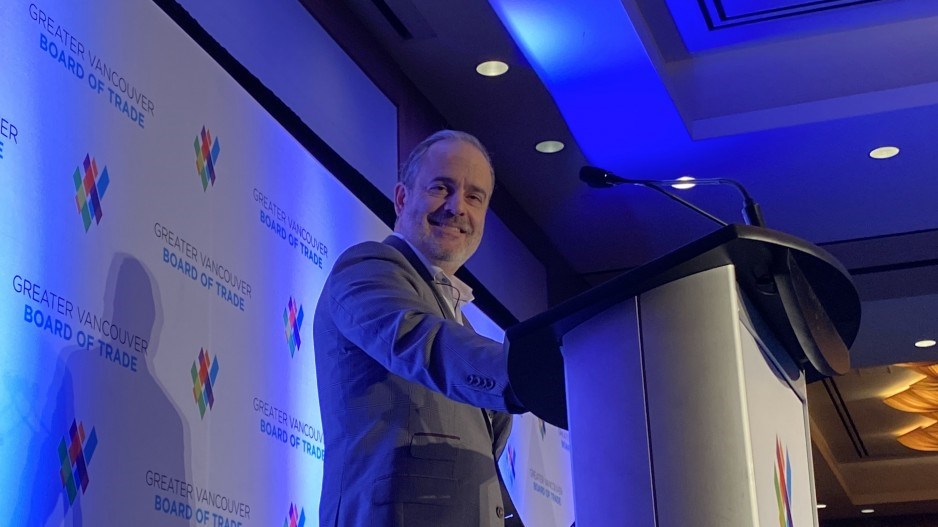Destination Vancouver's CEO Royce Chwin today hailed Vancouver's new city council as "needed" in order to change the deteriorating business and tourist climate in Chinatown and Gastown.
Homeless and drug-addicted people who have long gravitated to the Downtown Eastside, during the pandemic shifted to also congregate in Gastown and Chinatown.
Chinatown merchants pleaded with the former city council, which was largely ousted in October, to fund more police on the streets and provide more financial support to keep people from falling through the cracks and into the downward spiral of homelessness, drug addiction and crime.
Voters then elected seven A Better City (ABC) candidates to sit on the 10-member council, in addition to ABC candidate Ken Sim as mayor.
"Changes needed to happen at the city level," Chwin told a Greater Vancouver Board of Trade audience when addressing that issue.
"We needed to have different leadership and different thinking taking place because clearly what was going on was not working."
Vancouver city council in January unanimously passed a $2.16 million plan to help revitalize Chinatown.
Pilot projects for the historic neighbourhood are set to focus on better sanitation and graffiti removal to help clean up the area.
Money is to be spent on a new street-level office staffed by two people who would remove graffiti and conduct safety walks. The city's aim is also to keep the public washroom at the corner of Main and Hastings streets open 24 hours per day to help reduce human waste on city streets.
Earlier this week, the federal government said it would spend $1.8 million of new money to help revitalize Chinatown.
More than $1.3 million of the funding will be used modernize buildings, including the Chinese Cultural Centre, Chinatown Storytelling Centre and Dr. Sun Yat-Sen Classical Gardens, with new lighting, signage and awnings.
"We have tour operators in Europe right now who have stopped selling [tours to] Chinatown and Gastown because they're worried about safety," Chwin said. "They're worried about what the impact would be on their customers, and therefore their business, which is a shame because the businesses in Gastown and Chinatown deserve to have business come to them."
He labelled the revitalization effort as an "opportunity."
Chwin added that there needs to be more discussion around revitalizing Granville Street, specifically the 800 block, which Bonnis Properties has for years aimed to redevelop with a mixed use tower above heritage buildings such as the Commodore Ballroom – a project that would add back-of-house infrastructure for the Commodore Ballroom and the Orpheum Theatre.
Chwin's address touched on some other challenges Vancouver's tourism and hospitality industry faces.
Worker shortages are widespread at restaurants, hotels and destinations. There is also a significant shortage of hotel rooms, and he said that he planned to advocate for city council to approve new hotel developments.
Tourism Vancouver, during the pandemic, changed its name to Destination Vancouver. Chwin said the name change was important because his organization's mandate was shifting to focus on destination development as well as its longtime specialty of marketing and promoting the city as a tourism destination.
Tourism, he stressed, is not an end in itself, but rather a catalyst to develop the city and its economy.
Chwin said that the city has had a "dearth" of new tourism experiences. That is something he aims to change.
"That is an opportunity," he said. "Development also speaks to the work that we do with city council in advocating for development of hotel properties."



